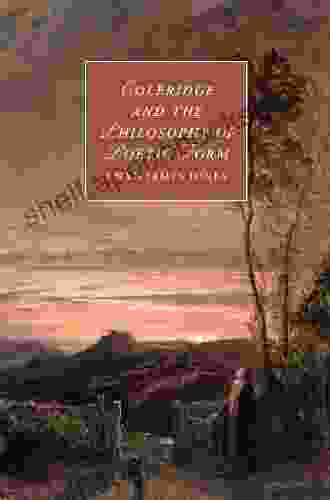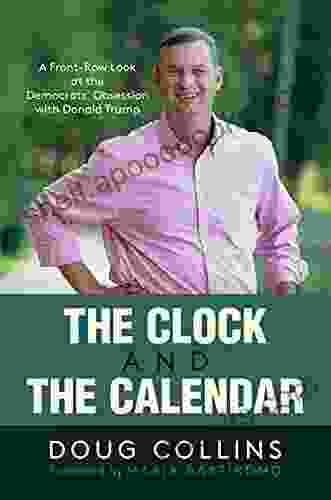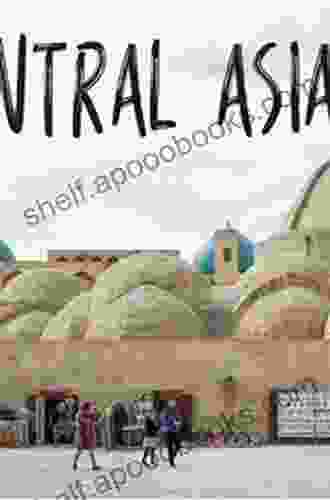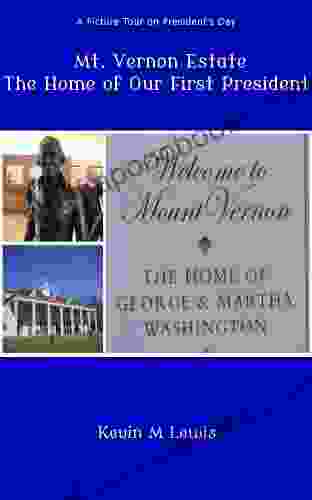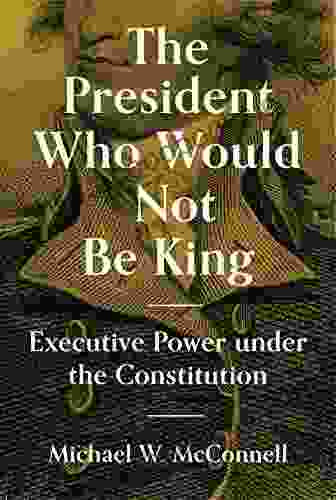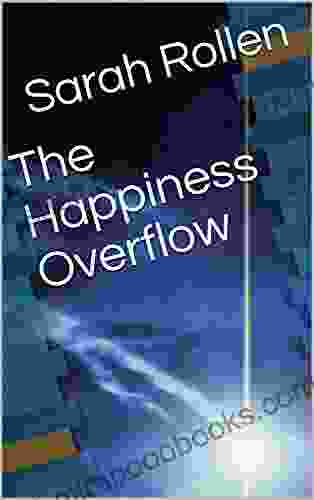Coleridge and the Philosophy of Poetic Form: Unveiling the Secrets of Poetry's Power

Samuel Taylor Coleridge, a towering figure of the Romantic era, left an indelible mark on the world of literature and philosophy. His profound insights into the nature of poetry and its impact on human consciousness have captivated scholars and poets alike for centuries. In "Coleridge and the Philosophy of Poetic Form," a groundbreaking work published in the prestigious Cambridge Studies in Romanticism series, we embark on an intellectual journey to explore Coleridge's groundbreaking ideas about the essence and purpose of poetry. 5 out of 5 Coleridge's philosophy of poetic form is deeply rooted in his broader metaphysical and epistemological beliefs. He viewed the universe as a dynamic, interconnected whole, governed by both rational laws and the creative power of the imagination. Poetry, in his view, was a unique form of knowledge that transcended the limitations of discursive reason, allowing us to access deeper truths about ourselves and the world around us. Central to Coleridge's philosophy of poetic form is the concept of organic unity. He believed that a true poem should be an indivisible, self-contained entity, where every element contributes to the overall meaning and effect. This organic unity is achieved through a delicate balance of form and content, where the language, rhythm, and rhyme work together to create a harmonious whole. Coleridge's philosophy of poetic form places great emphasis on the role of imagination. He saw imagination as a transformative power that transcends the boundaries of ordinary perception, allowing us to access deeper insights and create new worlds of experience. Through the act of poetic creation, the imagination blends and fuses disparate elements into a coherent and meaningful work of art. Coleridge also explored the unique nature of poetic language, which he believed possessed a transformative power of its own. He argued that poetic language is not merely a means of conveying information, but a creative force that shapes our understanding of the world. Through its evocative power and symbolic resonances, poetic language allows us to experience the depths of human emotion and connect with the transcendental realms of existence. Coleridge's philosophy of poetic form had a profound influence on the development of Romantic poetry. His emphasis on imagination, organic unity, and the transformative power of language resonated deeply with the Romantic poets, who sought to break free from the constraints of Enlightenment rationality and embrace the expressive power of the human spirit. Poets such as William Wordsworth, Percy Bysshe Shelley, and John Keats were greatly influenced by Coleridge's ideas, and their works bear witness to the enduring legacy of his thought. "Coleridge and the Philosophy of Poetic Form" is an essential work for anyone interested in the nature of poetry and the creative process. Coleridge's profound insights into the organic unity of poetic form, the role of imagination, and the transformative power of poetic language continue to inspire poets and scholars alike. This book is a testament to the enduring power of Coleridge's thought and its relevance to our understanding of the human experience. By delving into Coleridge's philosophy of poetic form, we gain a deeper appreciation for the transformative power of poetry and its ability to bridge the realms of the rational and the imaginative, the temporal and the eternal.Language : English File size : 1017 KB Text-to-Speech : Enabled Enhanced typesetting : Enabled Word Wise : Enabled Print length : 254 pages Screen Reader : Supported Coleridge's Philosophical Framework
The Organic Unity of Poetic Form
The Role of Imagination
The Nature of Poetic Language
Coleridge's Influence on Romantic Poetry
5 out of 5
| Language | : | English |
| File size | : | 1017 KB |
| Text-to-Speech | : | Enabled |
| Enhanced typesetting | : | Enabled |
| Word Wise | : | Enabled |
| Print length | : | 254 pages |
| Screen Reader | : | Supported |
Do you want to contribute by writing guest posts on this blog?
Please contact us and send us a resume of previous articles that you have written.
 Book
Book Novel
Novel Page
Page Chapter
Chapter Text
Text Story
Story Genre
Genre Reader
Reader Library
Library Paperback
Paperback E-book
E-book Magazine
Magazine Newspaper
Newspaper Paragraph
Paragraph Sentence
Sentence Bookmark
Bookmark Shelf
Shelf Glossary
Glossary Bibliography
Bibliography Foreword
Foreword Preface
Preface Synopsis
Synopsis Annotation
Annotation Footnote
Footnote Manuscript
Manuscript Scroll
Scroll Codex
Codex Tome
Tome Bestseller
Bestseller Classics
Classics Library card
Library card Narrative
Narrative Biography
Biography Autobiography
Autobiography Memoir
Memoir Reference
Reference Encyclopedia
Encyclopedia Disney Book Group
Disney Book Group Mario Pescatori
Mario Pescatori Don Miguel Ruiz
Don Miguel Ruiz Randy Carey
Randy Carey Guido Parietti
Guido Parietti Nancy Hoerner
Nancy Hoerner Dot Hutchison
Dot Hutchison Dr Douglas Beckman
Dr Douglas Beckman Donald I Warren
Donald I Warren Grace Daltrey
Grace Daltrey Stuart Greene
Stuart Greene Lois Mcmaster Bujold
Lois Mcmaster Bujold Jeff John
Jeff John Susan J Lamon
Susan J Lamon Marisha Mathis
Marisha Mathis Pindar
Pindar Donald L Robertson
Donald L Robertson Dick Weissman
Dick Weissman Doug Young
Doug Young Donald B Doty
Donald B Doty
Light bulbAdvertise smarter! Our strategic ad space ensures maximum exposure. Reserve your spot today!
 Jack LondonFollow ·9.8k
Jack LondonFollow ·9.8k Wayne CarterFollow ·16.9k
Wayne CarterFollow ·16.9k Herb SimmonsFollow ·17.3k
Herb SimmonsFollow ·17.3k Ernest PowellFollow ·9k
Ernest PowellFollow ·9k Geoffrey BlairFollow ·12.2k
Geoffrey BlairFollow ·12.2k Dawson ReedFollow ·19.8k
Dawson ReedFollow ·19.8k Ivan TurnerFollow ·9.3k
Ivan TurnerFollow ·9.3k Cody RussellFollow ·3.8k
Cody RussellFollow ·3.8k
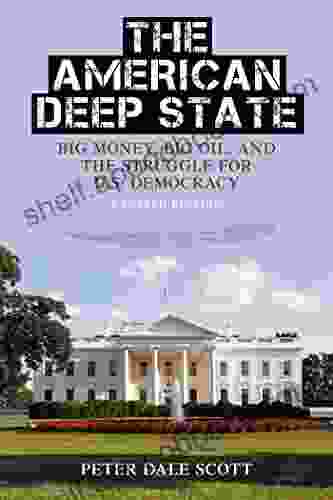
 Larry Reed
Larry ReedBig Money, Big Oil, and the Struggle for Democracy
By [Author's Name] In this...
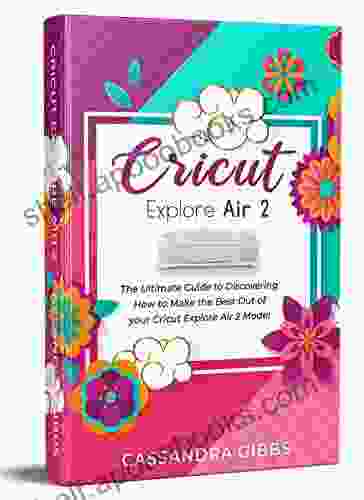
 Jackson Blair
Jackson BlairUnleash Your Creativity with The Ultimate Guide to Cricut...
Welcome to the extraordinary world of Cricut...
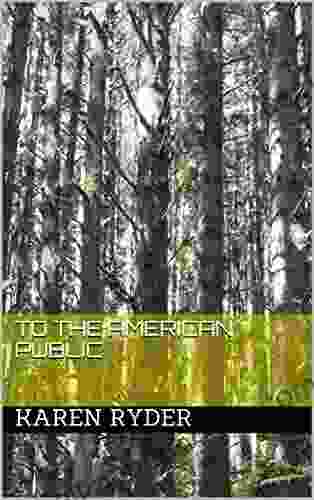
 Glen Powell
Glen PowellTo the American Public: Uncovering the Hidden Truths and...
An Incisive and Urgent Call to...

 Bryce Foster
Bryce FosterUltimate Guide to Starting a Mini Food Truck Business:...
: Embracing the Mobile Culinary...
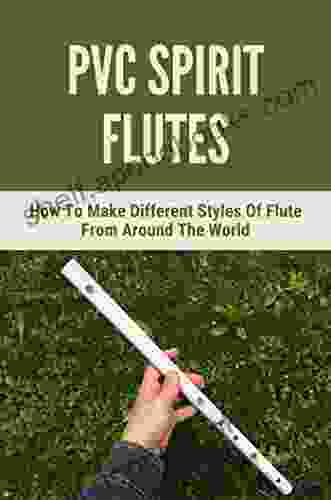
 John Steinbeck
John SteinbeckHow To Make Different Styles Of Flute From Around The...
Embark on a...
5 out of 5
| Language | : | English |
| File size | : | 1017 KB |
| Text-to-Speech | : | Enabled |
| Enhanced typesetting | : | Enabled |
| Word Wise | : | Enabled |
| Print length | : | 254 pages |
| Screen Reader | : | Supported |


